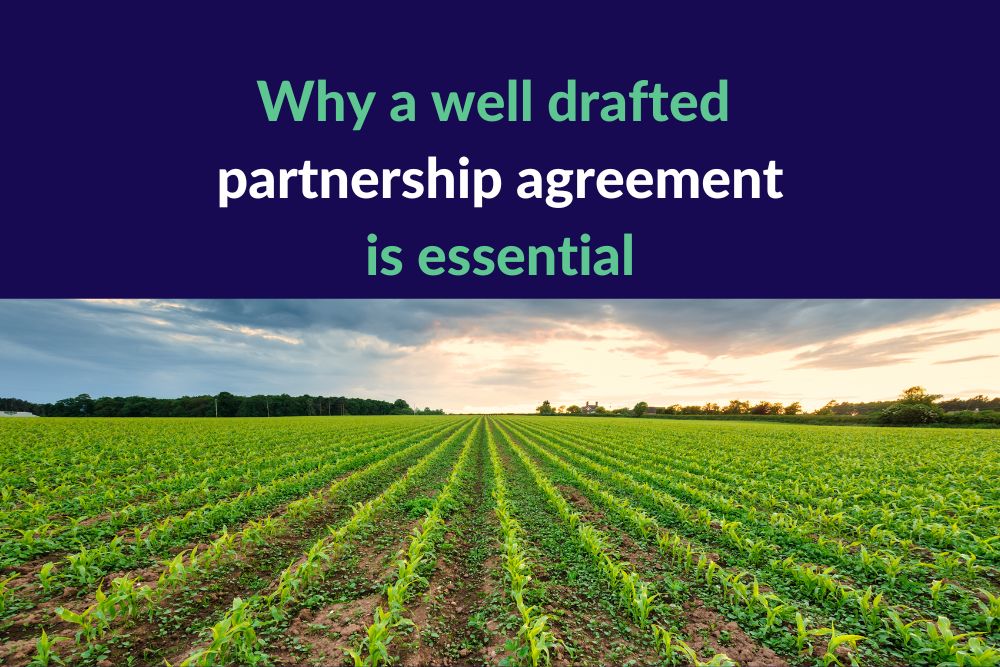A lawyer will always tell you that a well-drafted partnership agreement is essential. We would, wouldn’t we, it’s a job!
The truth is, however, that a well-drafted agreement is essential. It will do little save sit in a drawer; however, its benefits become apparent where a dispute arises or indeed a partner leaves, retires, or dies.
With no partnership agreement in place, the Partnership Act 1890 (“The Act”), sets out what happens in any of those circumstances. The Statute has survived for over a century which speaks volumes for it; however, within the context of farm partnership agreements something of a blunt instrument and does not always address the issues that parties believe that it should.
The Act includes the dissolution of a partnership on the death of an individual which can mean that all debts need to be settled, borrowings repaid, and the balance distributed between the remaining partners. At a practical level, however, so long as there is agreement, a new partnership will be created, take over all the debts and assets of the old partnership and there is unlikely to be a sale or distribution.
The key word is agreement. Anything can be agreed. Where, however, there is no agreement, the Partnership Act provides its standard default settings as a way forward.
Where a dispute does arise, a decent partnership agreement can reduce the chance of on-going problems and potentially sets out mechanisms for disputes to be resolved.
Lenders are increasingly requesting sight of a partnership agreement before terms of new lending will be agreed. This is similarly the case principally when a new partner is admitted.
At the outset, I referred to “well-drafted” agreements. That is key. Many farming families still operate partnerships without an agreement or with a poorly drafted document that is in fact a standard precedent populated to identify the parties. As such it will be general and not specific to your business.
Unless the agreement is comprehensive, the Act will fill in the blanks. The rise in land values has increased litigation on the terms of partnerships which, whilst again being beneficial to the lawyers, sees value in the partnership being reduced. As such, a degree of thought must be given to the document to ensure that it considers properly not only the existing partners but also the next generation involved on the farm.
A well-drafted agreement will consider how a partnership continues after a partner retires, dies, or leaves, will list partnership assets, and identify how an out-going partner’s share is to be dealt with and is calculated, will deal with potential removal of a partner who has lost capacity and identify how profits are to be shared, deal with voting deadlock and how new partners are to be brought in.
Said quickly, these are all relatively simple issues which would be identifiable to all involved in the partnership but often irrelevant in the short term as the parties charge forward with the on-going farm business.
Families are keen to avoid incurring professional fees. Quite right too! That is business-like, sensible, and cautious. There is, however, a time and a place when investment in professional services is necessary. The preparation of a partnership agreement is just one such time.
This article was first published in our regular column in the Farming Post section of the Yorkshire Post.
Follow this link if you would like to discuss partnership arrangements and issues affecting your farming business.



